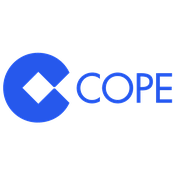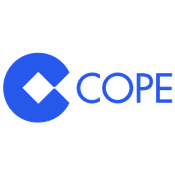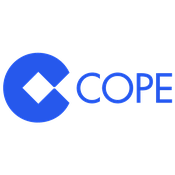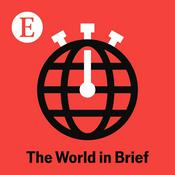155 episodios
- Capitalism has undergone a profound shift, as our financial system has moved away from its primary role of channeling capital into productive investments. Corporate priorities have instead turned toward maximizing short-term shareholder returns and deploying complex financial engineering that boosts firms’ bottom lines. In the process, American communities and long-term economic growth have paid the price.
Oren joins guest host Chris Griswold to discuss how this process of financialization is distorting the American economy and undermining capitalism itself. He explains how practices like leveraged buyouts, stock buybacks, and speculative financial activity have reshaped corporate incentives, why critics often conflate profit with value creation, and how these trends affect Americans and their communities.
Further Reading:
“The Finance Industry Is a Grift. Let’s Start Treating It That Way” by Oren Cass, New York Times.
“Actually, the U.S. Financial Sector Is Good for the Economy“ by Judge Glock, City Journal.
“‘The Finance Industry Is a Grift,’ Oren Cass Claims in the New York Times. Look Who’s Talking” by Ira Stoll, Washington Free Beacon.
“The Oren Cass Case for Central Planning Does Not Indict Wall Street for Anything” by Capital Record with David Bahnsen. - America’s housing shortage is often framed as a simple supply problem, but building the kinds of homes families actually need has proven far more complicated. While capital continues to flow into large suburban developments and luxury apartment buildings, the market has stopped producing the modest, family-friendly housing that once anchored stable communities and enabled young families to remain in thriving cities.
Bobby Fijan, co-founder of the American Housing Corporation, joins Oren to discuss why the “starter home” has largely disappeared and how development incentives, zoning rules, and capital markets have reshaped what gets built. They explore why current housing designs increasingly favor singles and roommates over families, how housing supply shapes family formation, urban vitality, and economic mobility, and how prefab manufacturing and vertically integrated construction start-ups like the American Housing Corporation could help deliver row homes in established neighborhoods and begin to change the culture. - America’s welfare programs have long operated on the assumption that states and nonprofits could responsibly steward federal dollars with minimal oversight. But a series of explosive fraud cases—from California to Mississippi to Minnesota—have exposed just how broken that system has become, with lax oversight and minimal accountability leading to billions of dollars stolen from taxpayers.
Shad White, Mississippi’s state auditor and author of Mississippi Swindle, joins Oren to explain how his office uncovered one of the largest welfare scandals in modern history and what it reveals about America’s safety net. They discuss why grant-based welfare programs are uniquely vulnerable to abuse, how federalism often undermines accountability, and how practical reforms like stronger enforcement, clearer metrics, and simpler program design can restore public trust while helping the families who need support most. - The annual gathering of the world’s leadership class at the World Economic Forum in Davos bills itself as high-minded forum for increased global cooperation in the now-struggling old international order. But, in practice, it’s more of a concentrated mass of industry titans flexing with their various status badges, “bilaterals,” and AI slogans all while anxiously refreshing their phones for the latest updates on the Trump administration’s next moves.
Filming from his hotel room in the Alps, Oren, our intrepid correspondent in Davos, joins Drew to report what he heard and saw from these often panic-stricken elites. They discuss how the Davos crowd is really reacting to Trump’s approach to alliances and American leadership, why episodes like Greenland trigger outsized panic among our allies, and where legitimate concerns about trust and cooperation get lost in elite groupthink.
Further Reading:
“A Sharp Break over a Piece of Ice,” Oren Cass, Commonplace. - Inflation may have cooled, but Americans still feel squeezed. Groceries are still expensive, housing and health care costs continue to outpace wages, and consumer credit debt continues to balloon, leaving a gap between encouraging economic data and the daily experience of the average American. Voters continue to express concern, and the Trump administration has responded with a flurry of proposals aimed at bringing prices down.
Daniel Kishi, senior policy advisor at American Compass, joins Oren to make sense of what’s actually driving the affordability crisis and how policymakers should respond. They examine recent, sometimes unconventional, ideas from the administration to expand housing supply, cap credit card rates, overhaul health care, and empower more aggressive antitrust enforcement. Plus, they discuss the necessary role that Congress must play in codifying workable, populist solutions if the affordability crisis is to be solved.
Further Reading:
“Trump's New Volcker Shock" by Henry Olsen
“Our Concentrated Health Care Markets Are Anything but ‘Free’" by Chris Griswold
Más podcasts de Noticias
Podcasts a la moda de Noticias
Acerca de The American Compass Podcast
Our mission is to restore an economic consensus that emphasizes the importance of family, community, and industry to the nation’s liberty and prosperity. The American Compass Podcast features conversations on a wide variety of policy issues aimed at helping policymakers and the broader public navigate the most pressing issues that will define the future of the conservative movement in America.
Sitio web del podcastEscucha The American Compass Podcast, La brújula y muchos más podcasts de todo el mundo con la aplicación de radio.es
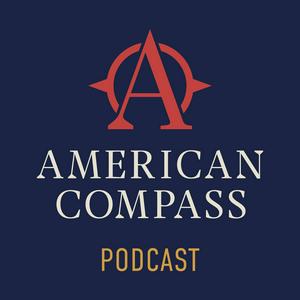
Descarga la app gratuita: radio.es
- Añadir radios y podcasts a favoritos
- Transmisión por Wi-Fi y Bluetooth
- Carplay & Android Auto compatible
- Muchas otras funciones de la app
Descarga la app gratuita: radio.es
- Añadir radios y podcasts a favoritos
- Transmisión por Wi-Fi y Bluetooth
- Carplay & Android Auto compatible
- Muchas otras funciones de la app


The American Compass Podcast
Escanea el código,
Descarga la app,
Escucha.
Descarga la app,
Escucha.















